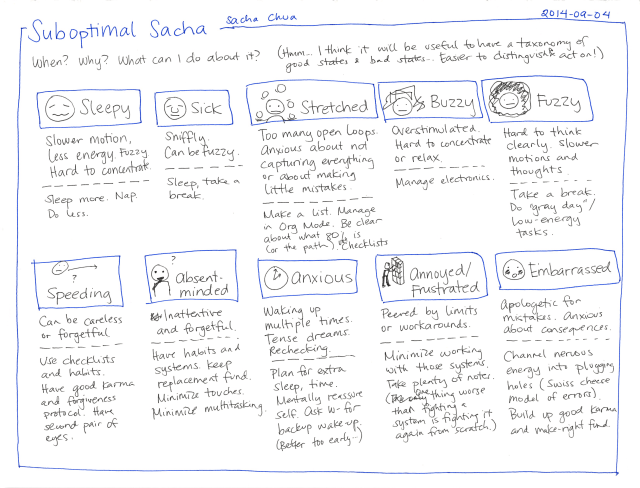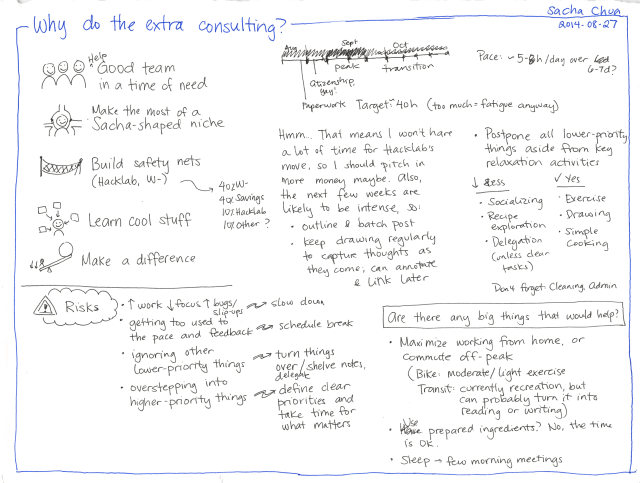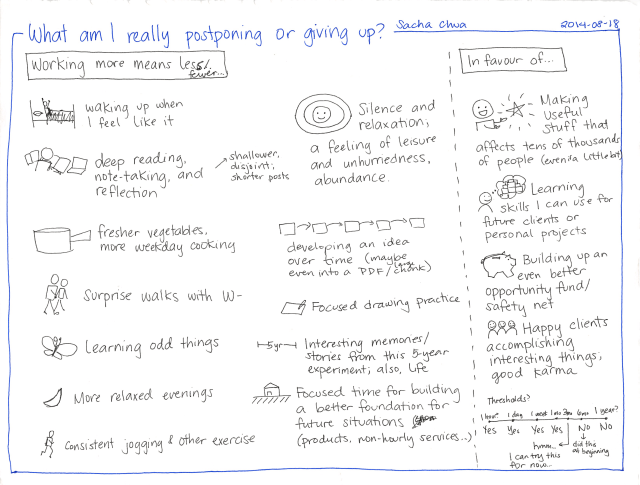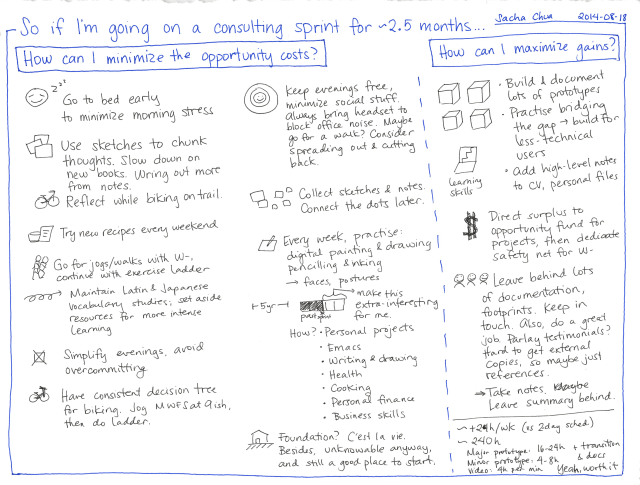As an experiment, I decided to work a lot more last week than I normally do. I made work my default activity. If I didn't have something particularly interesting in mind to write or draw or read, I'd log on to the network and check for requests, work on prototypes, and follow up on things I needed to do.
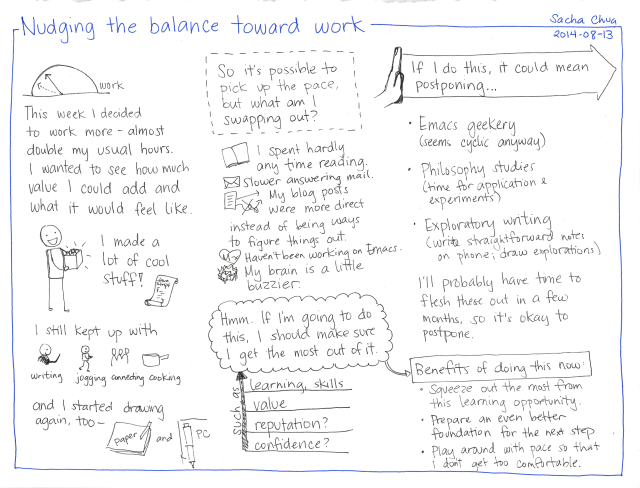
2014-08-13 Nudging the balance toward work – #experiment #consulting
The result was a very productive week. I made a few interesting Javascript-y prototypes that we're considering for use. On the the non-technical end, I worked on some marketing materials. The momentum and focus felt great.
One of the things I realized about consulting when I was at IBM was that consulting is as much a learning opportunity for you as it is a way to create value for clients. At a little over two years, I think this is the longest I've ever worked on a single engagement. I want to make the most of what I can learn from this, while I'm immersed in the API and the environment and the experience. I'd like to get even deeper into building user interfaces, maybe even analyzing and tweaking performance.
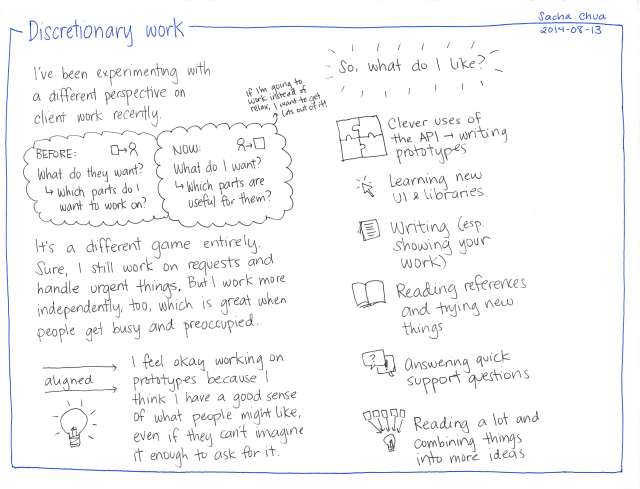
2014-08-13 Discretionary work – #consulting
These are skills I can build on that for future products, services, or consulting engagements. Because I haven't been blogging or keeping copies of my code (didn't feel right based on the IP agreement of my engagement), I'll have to trust that the fuzzy recollections of my brain are enough for me.
My track record for remembering isn't too good. I can only vaguely remember some of the details the projects I worked on at IBM, and I suspect I've completely forgotten at least one. (And t's only been two years since I left!) But confidence and a certain sense of where things are or how I can go about doing things–those things stay with you, even if the specifics go.
Still, focusing on work makes me feel a little like I miss giving myself long stretches of time to tinker with non-work code, write blog posts, and figure out questions. It feels like my brain is a little buzzier, a little more tired. I usually sit down and write for an afternoon or two, when my brain is clear. In a few months, I'll have plenty of time to follow my own interests, so I guess I can wait until then. But it's good to know what I'm postponing so that I don't get too used to not having it. From Daniel Klein's Travels with Epicurus:
And Epicurus saw this opportunity for old age as one more benefit from leaving the world of commerce and politics behind us; it frees us to focus our brainpower on other matters, often more intimate and philosophical matters. Being immersed in the commercial world constrains the mind, limiting it to the conventional, acceptable thoughts; it is hard to close a sale if we pause in the proceedings to meditate at length about man’s relation to the cosmos. Furthermore, without a busy schedule, we simply have the time to ruminate unhurriedly, to pursue a thought for as long and as far as it takes us.
Incidentally, I really like this ability to change my work schedule on a week-by-week basis. This is the weekly variation in all the time I spent directly related to earning since I started this experiment in February 2012:

I started off working a lot, aiming for about 4 days a week. I tapered off a little to 2-3 days, and took a month off from time to time. Last week was more like the focused days of early in the experiment. I've gained a lot from learning to relax and use my time for my own interests, so we'll see how that plays out against these desires to learn and create a lot of value.

